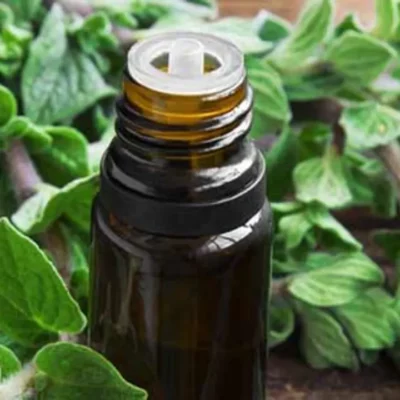
Wellhealthorganic.com:winter-skin-care-tips-home-remedies-to-keep-your-skin-moisturised
Keeping your skin moisturized in the cold weather is essential to keeping it healthy and looking its best. There are a variety of home remedies that can be used to keep your skin hydrated and moisturized, such as using a humidifier, using lotion or creams regularly, and taking supplements. It is also important to avoid harsh chemicals, sun exposure, and wind when possible, as all of these can damage your skin in the winter.
What are the key steps to keep your skin moisturized in winter?
Hydrate from the Inside Out: Drinking plenty of water is crucial for maintaining healthy skin during winter months. Water helps to flush out toxins and keep your skin moisturized from the inside out.
Use a Humidifier: The dry air in winter can quickly dehydrate your skin, causing it to become dry, flaky, and irritated. Using a humidifier in your home or office can help to add moisture back into the air and prevent your skin from drying out.
Moisturize Regularly: Applying a good quality moisturizer twice daily is essential for keeping your skin hydrated during the winter months. Look for products that contain natural ingredients like shea butter, coconut oil, or jojoba oil as they are known to lock in moisture without clogging pores.
Don’t Forget Your Lips: Our lips are often overlooked when it comes to skincare but they need just as much attention as our face and body! Keep them moisturized by applying lip balm regularly throughout the day.
Avoid Hot Showers: While it may be tempting to take long hot showers during colder months, doing so can actually strip away natural oils from your skin leaving it dry and tight feeling instead of moisturized. Instead, opt for lukewarm water and keep showering time limited to 10-15 minutes at most.
Winter can be harsh on the skin, causing dryness, flakiness, and discomfort. However, there are several home remedies and tips you can follow to keep your skin moisturized and healthy during the winter season. Here are some winter skin care tips and home remedies:
Hydrate from the inside out:
Staying hydrated is essential for maintaining healthy skin, even during winter. Drink plenty of water throughout the day to keep your skin moisturized from the inside out.
One of the most important things you can do for your skin during the winter months is to stay hydrated. While applying moisturizer and drinking plenty of water are essential, hydrating from the inside out is just as vital. Drinking enough water can help flush toxins out of your body, which in turn will improve your skin’s overall appearance.
In addition to drinking plain water, there are other ways to get hydrated from the inside out. Eating foods with high water content such as cucumbers, celery, and citrus fruits can also help keep your skin moisturized. You may also want to consider incorporating herbal teas into your routine; chamomile and green tea are known for their hydrating properties.
While it may be tempting to reach for hot cocoa or coffee during the colder months, these drinks can actually dehydrate you further. It’s best to limit your intake of caffeine and sugar if you want to keep your skin looking its best throughout the winter season. Instead, opt for hydrating drinks like coconut water or infused waters with slices of fruit for a refreshing twist on hydration from within.
Also Read: WELLHEALTHORGANIC.COM:RED-CHILLI-YOU-SHOULD-KNOW-ABOUT-RED-CHILLI-USES-BENEFITS-SIDE-EFFECTS
Use a humidifier:
Indoor heating during winter can strip the air of moisture, which can cause dryness in the skin. Using a humidifier in your home or office can help replenish the moisture in the air and keep your skin hydrated.
Using a humidifier is an effective way to keep your skin moisturized during the winter months. Low humidity levels can cause your skin to become dry, itchy, and irritated. A humidifier adds moisture to the air, which helps keep your skin hydrated and healthy.
Not only does use a humidifier help with dry skin, but it also has other health benefits. Adding moisture to the air can help relieve symptoms of allergies and asthma by reducing airborne irritants like dust and pollen. It can also prevent respiratory infections by keeping mucous membranes in the nose and throat moist.
When using a humidifier, it’s important to clean it regularly to prevent the growth of mold and bacteria. Use distilled water instead of tap water to avoid mineral buildup in the machine. Place the humidifier away from walls or furniture where excess moisture could cause damage. By incorporating a humidifier into your home during winter, you can improve both your skin health and overall well-being.
Avoid hot showers:
Hot showers may feel relaxing during the cold winter months, but they can strip your skin of its natural oils, leading to dryness. Opt for lukewarm water instead and limit your showers to no more than 10-15 minutes.
Hot showers can be incredibly tempting, especially during the chilly winter months. However, they can do more harm than good when it comes to your skin. Hot water strips away natural oils from your skin and leaves it feeling dry and irritated – the last thing you want in the middle of winter! Instead, opt for lukewarm water while showering or bathing to keep your skin soft and supple.
When you’re done with your shower, gently pat yourself dry instead of rubbing vigorously with a towel. This will help retain moisture on your skin’s surface and prevent further drying. Afterward, don’t forget to apply a good moisturizer all over your body while your skin is still damp – this helps lock in moisture which keeps it hydrated throughout the day.
In addition to avoiding hot showers, consider investing in a humidifier as well if you live in an area with low humidity levels. The drier the air around you, the more moisture is pulled out from your skin. A humidifier adds moisture back into the air and helps keep your skin hydrated naturally without any additional effort on your part.
Moisturize regularly:
Choose a thick, oil-based moisturizer to lock in moisture and create a barrier on your skin to protect it from harsh winter elements. Apply moisturizer all over your body after showering and before bed to keep your skin hydrated.
Keeping your skin moisturized is crucial, especially during the winter season when cold and dry air can cause severe dehydration. Dry skin can lead to itching, flaking, and even cracking. Moisturizing regularly can help maintain the natural moisture level of your skin, prevent it from drying out and keep it looking healthy.
Applying a good quality moisturizer daily after bathing or showering is essential for keeping your skin hydrated. Choose a moisturizer that suits your skin type – oily, dry, normal or combination – and contains ingredients such as glycerin, hyaluronic acid or ceramides that help retain moisture in the skin.
Apart from using a moisturizer, you can also hydrate your skin by drinking plenty of water throughout the day. Water helps to flush out toxins from the body and keeps it hydrated from within. Another tip is to use a humidifier at home to add moisture back into the air which will keep your skin supple during the harsh winter months.
Exfoliate gently:
Exfoliating helps remove dead skin cells and allows your moisturizer to penetrate better. However, avoid harsh scrubs and opt for a gentle exfoliator that won’t further dry out your skin.
Exfoliating is an essential part of any skincare routine, but it’s important to do it gently. Especially during the winter months when skin is already dry and sensitive, harsh exfoliation can cause irritation and redness. Opt for a gentle exfoliant that doesn’t contain large granules or beads that can scratch your skin. Instead, look for chemical exfoliants like alpha-hydroxy acids (AHAs) or beta-hydroxy acids (BHAs) that dissolve dead skin cells without causing physical damage.
Another way to exfoliate gently is to use a soft cloth or brush instead of a scrub. A microfiber cloth or konjac sponge can be used with your favorite cleanser to provide gentle exfoliation while also removing dirt and impurities from your pores. Be sure not to apply too much pressure when using these tools as this can cause unnecessary friction on your delicate skin.
In addition to being gentle with your exfoliation methods, it’s crucial to moisturize immediately after. Exfoliating removes dead skin cells which allows moisturizers to penetrate deeper into the layers of the skin more effectively. Apply a hydrating serum or lotion right after you’ve finished cleansing and exfoliating for best results in keeping your skin soft and smooth throughout the winter months.
Wear protective clothing:
Cover up your skin with warm clothing, such as scarves, hats, and gloves, to protect it from cold winds and dry air. Also, choose fabrics like cotton or natural fibers that are less likely to irritate your skin.
Wearing protective clothing is essential during the winter season to protect your skin from harsh weather conditions. It is important to cover as much skin as possible, especially when going outside. This can include wearing gloves, scarves, hats, and thick socks to prevent frostbite or dryness. Additionally, wearing a coat or jacket with a hood can help protect your head and neck from windburn.
When it comes to choosing fabrics for your winter wardrobe, opt for materials that are gentle on the skin such as cotton or wool blends. Avoid tight-fitting clothes that may rub against your skin and cause irritation. Remember to also layer your clothing so that you can easily adjust according to changing temperatures throughout the day.
In conclusion, protective clothing plays a crucial role in keeping our skin healthy during winters. By following these simple tips, you can ensure that you not only look stylish but also keep yourself protected from the harmful effects of cold weather on your skin.
Use natural oils:
Natural oils, such as coconut oil, olive oil, or almond oil, can be excellent home remedies to moisturize your skin during winter. Apply a few drops of oil to damp skin after showering or mix it with your regular moisturizer for added hydration.
Natural oils are a great way to keep your skin moisturized during the winter months. There are many different types of natural oils available, each with its own unique benefits. For example, coconut oil is known for its antimicrobial properties and can be used to soothe dry, itchy skin. Similarly, jojoba oil is rich in vitamin E and can help to reduce inflammation and promote healthy skin.
Another popular natural oil for winter skincare is argan oil. This nutrient-rich oil is packed with antioxidants and essential fatty acids that help to repair damaged skin cells and improve overall skin health. It also has anti-inflammatory properties that make it a great choice for those with sensitive or irritated skin.
Overall, incorporating natural oils into your daily skincare routine can help to ensure that your skin stays hydrated and healthy throughout the winter months. Whether you choose coconut oil, jojoba oil or argan oil, these natural remedies will provide an effective solution for combating dryness and protecting your delicate skin from harsh weather conditions.
Avoid harsh skincare products:
Some skincare products, such as those containing alcohol or fragrances, can further dry out your skin during winter. Opt for gentle, hydrating skincare products that are specifically formulated for dry or sensitive skin.
Harsh skincare products can be detrimental to your skin’s health, especially during the winter months. Cold weather can cause dryness and flakiness, which is why it’s essential to avoid products that strip away natural oils from your skin. Instead, choose gentle cleansers that won’t leave your face feeling tight and dry after washing.
Another important tip is to look for moisturizers that contain hydrating ingredients like hyaluronic acid or glycerin. These ingredients help to lock in moisture, keeping your skin soft and supple throughout the day. Avoid heavy creams that may clog pores and opt for lightweight formulas that absorb easily into the skin.
Lastly, it’s vital to pay attention to how your skin reacts to different products. If you notice any redness or irritation after using a particular product, discontinue use immediately. Your skin is unique and requires special care during the harsh winter months. By avoiding harsh skincare products and using gentle, hydrating alternatives instead, you’ll keep your skin healthy and glowing all season long!
Also Read: WELLHEALTHORGANIC.COM:KNOW-WHY-YOU-FEEL-LAZY-TIRED-AND-LETHARGIC-ALL-THE-TIME
Protect your lips:
Lips are particularly susceptible to dryness and chapping during winter. Apply a lip balm or lip moisturizer with SPF to protect your lips from the harsh winter elements.
One of the most overlooked areas when it comes to skincare during the winter season is our lips. Our lips are extremely sensitive and prone to dryness and cracking due to exposure to cold weather, wind, and indoor heating. To protect your lips, apply a lip balm or petroleum jelly regularly throughout the day. Look for ingredients like beeswax, shea butter, cocoa butter, or coconut oil as they help in locking in moisture.
Another way you can protect your lips during winters is by staying hydrated. Drinking plenty of water keeps your skin hydrated from within which helps in preventing dryness on your lips. Additionally, avoid licking or biting your lips as this causes further chapping and irritation.
Lastly, if you plan on spending prolonged periods outdoors during winters, layer up with a scarf or neck gaiter that covers both your mouth and nose area. This will help protect not only your skin but also prevent breathing in cold air that may lead to respiratory issues while keeping your lips moisturized at the same time. By following these tips diligently throughout the season will ensure that you have soft and supple-looking lips all winter long!
Eat a healthy diet:
Eating a balanced diet rich in vitamins, minerals, and antioxidants can help promote healthy skin from within. Include foods like fruits, vegetables, nuts, and fatty fish in your diet to nourish your skin.
To keep your skin glowing, it is important to nourish your body from the inside out by eating a healthy diet. Consuming foods that are rich in antioxidants, vitamins, and minerals can help prevent wrinkles and reduce inflammation in the body. Fruits and vegetables such as berries, spinach, carrots, and sweet potatoes are excellent sources of vitamins A and C which promote collagen production in the skin.
In addition to fruits and vegetables, incorporating healthy fats into your diet can also benefit your skin. Foods like salmon, avocados, nuts, and olive oil contain omega-3 fatty acids that help maintain the integrity of cell membranes in the skin. These essential fatty acids also have anti-inflammatory properties that reduce redness and irritation.
Lastly, staying hydrated is crucial for maintaining healthy skin. Drinking plenty of water throughout the day helps flush out toxins from the body which can contribute to acne breakouts or dull-looking skin. Aim to drink at least 8 glasses (64 ounces) of water daily or more if you are active or live in a dry climate. By making small changes to your diet such as adding more colorful fruits and veggies or swapping unhealthy fats for healthier ones, you can improve not only your overall health but also achieve radiant-looking skin this winter season!
Remember, everyone’s skin is different, so it’s essential to pay attention to how your skin reacts to different remedies and adjust your skincare routine accordingly. If you experience persistent skin issues or severe dryness during winter, it’s best to consult a dermatologist for proper evaluation and treatment.
Conclusion
In conclusion, taking care of your skin during the winter months is crucial to maintaining healthy and moisturized skin. There are a variety of home remedies that can be used to combat dryness and keep your skin looking its best. Some of these remedies include using honey as a natural moisturizer or using avocado oil as a nourishing treatment.
It’s important to remember that everyone’s skin is different, so it may take some trial and error to find the right routine for you. Pay attention to how your skin reacts to different products and adjust accordingly. Additionally, don’t forget about the importance of staying hydrated and protecting your skin from harsh weather conditions with scarves, gloves, and hats.
By following these tips and incorporating them into your daily routine, you can ensure that your skin stays healthy, moisturized, and glowing all winter long. Remember: prevention is key when it comes to skincare so start implementing these habits today!
FAQ
Q: What are some winter skin care tips?
A: Here are some winter skin care tips:
- Stay hydrated by drinking plenty of water.
- Use a humidifier to add moisture to the air indoors.
- Avoid hot showers and use lukewarm water instead.
- Moisturize regularly with a thick, oil-based moisturizer.
- Exfoliate gently to remove dead skin cells.
- Wear protective clothing like scarves, hats, and gloves.
- Use natural oils, such as coconut oil or olive oil, to moisturize your skin.
- Avoid harsh skincare products and opt for gentle, hydrating ones.
- Protect your lips with a lip balm or moisturizer with SPF.
- Eat a healthy diet rich in vitamins and antioxidants.
Q: Can I use natural oils to moisturize my skin during winter?
A: Yes, natural oils can be an excellent home remedy to moisturize your skin during winter. Oils like coconut oil, olive oil, or almond oil can help lock in moisture and provide hydration to the skin. Apply a few drops of oil to damp skin after showering or mix it with your regular moisturizer for added hydration.
Q: How can I protect my lips during winter?
A: Lips are particularly susceptible to dryness and chapping during winter. To protect your lips, you can use a lip balm or lip moisturizer with SPF to keep them hydrated and shield them from the harsh winter elements.
Q: Should I exfoliate my skin during winter?
A: Yes, exfoliating your skin during winter can help remove dead skin cells and allow your moisturizer to penetrate better. However, it’s important to exfoliate gently and avoid harsh scrubs that can further dry out your skin. Choose a gentle exfoliator that is suitable for your skin type and use it sparingly, about once or twice a week.
Q: What type of moisturizer is best for winter?
A: During winter, it’s best to use a thick, oil-based moisturizer that can lock in moisture and create a barrier on your skin to protect it from harsh winter elements. Look for moisturizers that contain hydrating ingredients like hyaluronic acid, glycerin, and ceramides, and avoid those with alcohol or fragrances that can further dry out your skin.
Q: Can indoor heating affect my skin during winter?
A: Yes, indoor heating during winter can strip the air of moisture, which can result in dryness and discomfort in the skin. Using a humidifier in your home or office can help replenish the moisture in the air and keep your skin hydrated.










